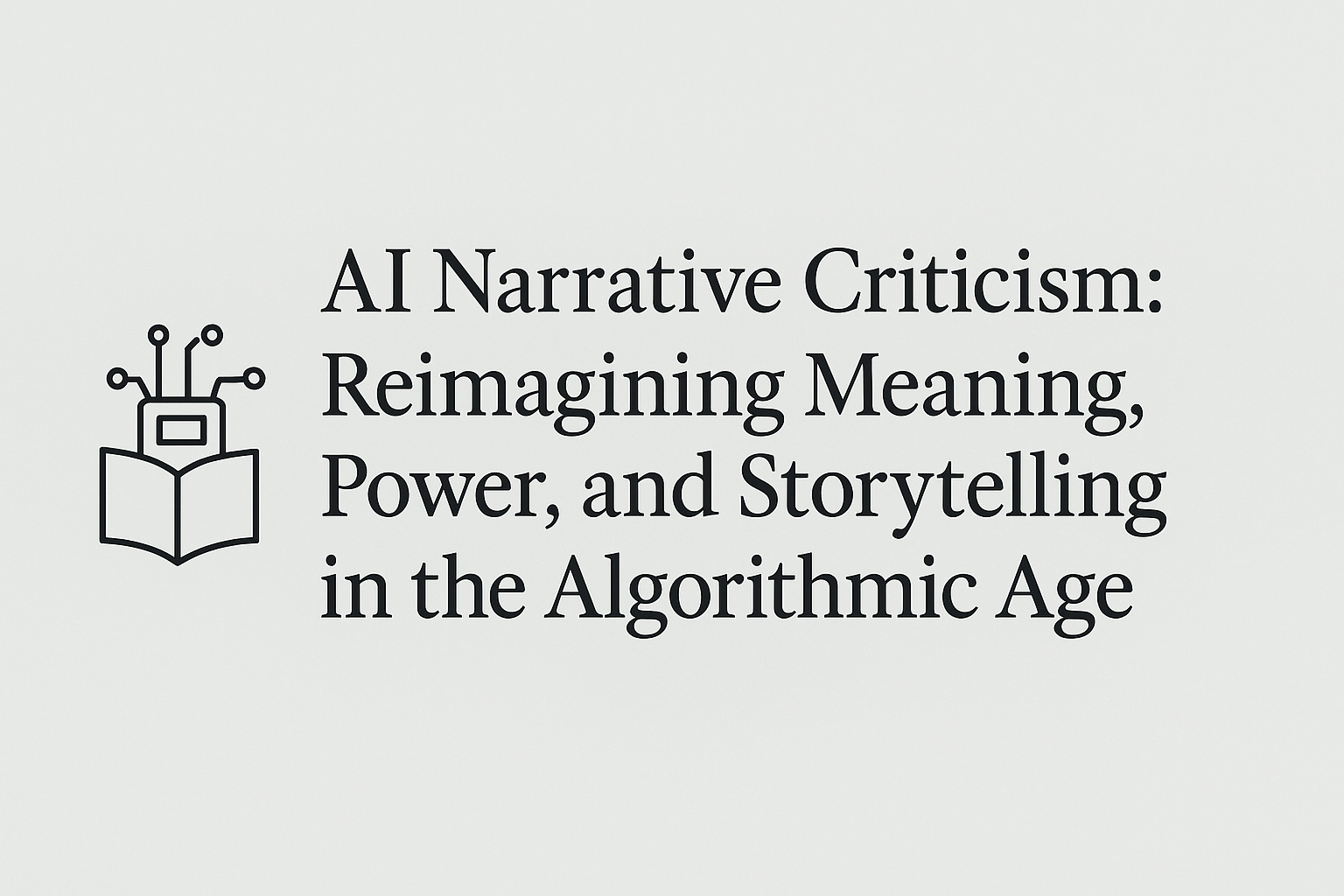AI Narrative Criticism: Reimagining Meaning, Power, and Storytelling in the Algorithmic Age
الكلمات المفتاحية:
AI Narrative Criticism، Machine Storytelling، Posthuman Theory، Algorithmic Narrativity، Authorship, Textuality، Digital Culture، Ethical Reflexivityالملخص
This article introduces AI Narrative Criticism as a critical methodology for interpreting stories about, by, and through artificial intelligence in the algorithmic age. It argues that AI systems no longer serve merely as tools of communication but operate as narrative apparatuses that generate, curate, and structure meaning across cultural, literary, and digital domains. Building on poststructuralist narratology, posthuman theory, and critical media studies, the paper outlines three analytic registers: (1) narratives about AI in cultural and policy discourse that project fantasies and anxieties; (2) narratives by AI, such as large language model outputs that demand reconceptualisations of authorship and textuality, and (3) narratives through AI, shaped by algorithmic recommendation systems that structure attention, perception, and affect. Through case studies ranging from speculative fiction and machine-generated writing to platform-curated feeds, the article demonstrates how machinic narrativity unsettles traditional assumptions of intention, coherence, and human-centered authorship. To engage these transformations, the paper proposes a framework for reading AI-mediated storytelling through four methodological coordinates; contextual mapping, discursive reading, aesthetic analysis, and ethical reflexivity. The study concludes that in the age of narrative automation, literary criticism must reinvent itself to confront the aesthetic, epistemic, and political implications of machine-mediated storytelling.
التنزيلات
المراجع
1. Barthes, Roland. Image, Music, Text. Translated by Stephen Heath, Hill and Wang, 1977.
2. Braidotti, Rosi. The Posthuman. Polity Press, 2013.
3. Bucher, Taina. If... Then: Algorithmic Power and Politics. Oxford University Press, 2018.
4. Crawford, Kate. Atlas of AI: Power, Politics, and the Planetary Costs of Artificial Intelligence. Yale University Press, 2021.
5. Derrida, Jacques. Of Grammatology. Translated by Gayatri Chakravorty Spivak, Johns Hopkins University Press, 1997.
6. Foucault, Michel. The Archaeology of Knowledge and the Discourse on Language. Translated by A. M. Sheridan Smith, Pantheon Books, 1972.
7. Hayles, N. Katherine. How We Became Posthuman: Virtual Bodies in Cybernetics, Literature, and Informatics. University of Chicago Press, 1999.
8. Noble, Safiya Umoja. Algorithms of Oppression: How Search Engines Reinforce Racism. NYU Press, 2018.
9. Ryan, Marie-Laure. Narrative as Virtual Reality: Immersion and Interactivity in Literature and Electronic Media. Johns Hopkins University Press, 2001.
10. White, Hayden. The Content of the Form: Narrative Discourse and Historical Representation. Johns Hopkins University Press, 1987.
11. Zuboff, Shoshana. The Age of Surveillance Capitalism: The Fight for a Human Future at the New Frontier of Power. PublicAffairs, 2019.

التنزيلات
منشور
إصدار
القسم
الرخصة
الحقوق الفكرية (c) 2025 Scholar Insight Journal

هذا العمل مرخص بموجب Creative Commons Attribution 4.0 International License.
Authors retain the copyright of their work. All articles in Scholar Insight Journal are published under the terms of the Creative Commons Attribution 4.0 International License (CC BY 4.0).
This license permits anyone to read, download, copy, distribute, print, search, or link to the full texts of the articles, and to use them for any other lawful purpose, without asking prior permission from the author(s) or the publisher, provided proper attribution is given to the original work.




